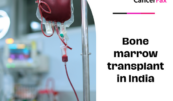Saliva test aims to detect HPV throat cancer
A Queensland University of Technology (QUT) researcher is developing a simple saliva test to detect human papillomavirus (HPV) in laryngeal cancer. This is an extension of cooperation with Johnson & Johnson, Jensen Vaccine Prevention, and Jensen Sidip Ltd.
Professor Chamindie Punyadeera from the QUT Institute of Health and Biomedical Innovation (IHBI) said that with the development of new therapeutic vaccines, it is important to identify those in the general population who should receive vaccine treatment. In the early stages of HPV-induced laryngeal cancer, identifying high-risk groups will help prevent cancer from worsening.
Highly sensitive diagnosis based on saliva provides a possibility to detect human HPV infection in a low-cost, non-invasive way.
The new therapeutic vaccine is expected to have an immediate impact on the prevalence of HPV-related malignancies.
Professor Punyadeera said HPV throat cancer has proven to be more difficult to identify than cancers caused by smoking.
She said the goal of the new technology is to identify people who are at risk for laryngeal cancer and intercept them before they develop symptoms such as sore throat, difficulty swallowing, or a lump in the neck or throat.
This way, diagnosis and early treatment can begin before invasive treatment is required.
Punyadeera’s research has developed a diagnostic saliva flush test that can help general practitioners, oncologists, and dentists to detect early-stage throat cancer. We hope that a simple, non-invasive saliva sample will be sent to the laboratory or field test to determine whether the patient needs further examination.
Professor Punyadeera said: Ultimately, we hope to develop a test that allows patients to perform home tests and monitoring.
For details on head & neck cancer treatment and second opinion, do call us at +91 91741 52285 or write to cancerfax@gmail.com.
- Comments Closed
- August 18th, 2020



HPV, human papillomavirus, Jensen Sidip Ltd, Jensen Vaccine Prevention, Johnson & Johnson, Queensland University of Technology, QUT
CancerFax is the most trusted online platform dedicated to connecting individuals facing advanced-stage cancer with groundbreaking cell therapies.
Send your medical reports and get a free analysis.
🌟 Join us in the fight against cancer! 🌟
Привет,
CancerFax — это самая надежная онлайн-платформа, призванная предоставить людям, столкнувшимся с раком на поздних стадиях, доступ к революционным клеточным методам лечения.
Отправьте свои медицинские заключения и получите бесплатный анализ.
🌟 Присоединяйтесь к нам в борьбе с раком! 🌟